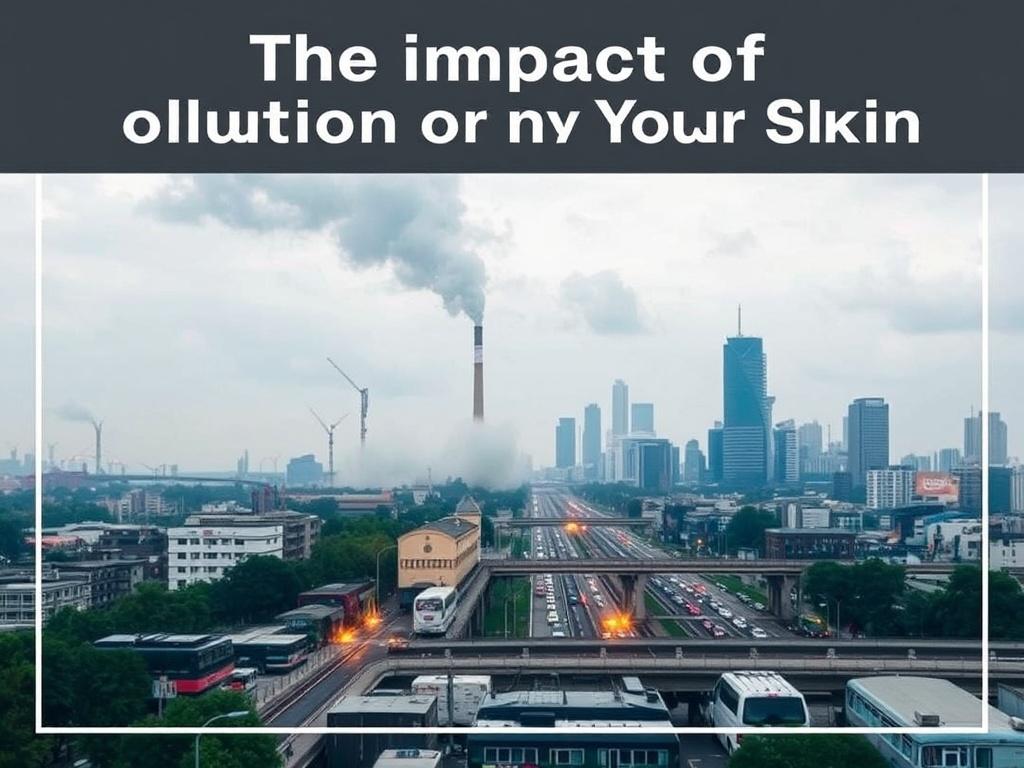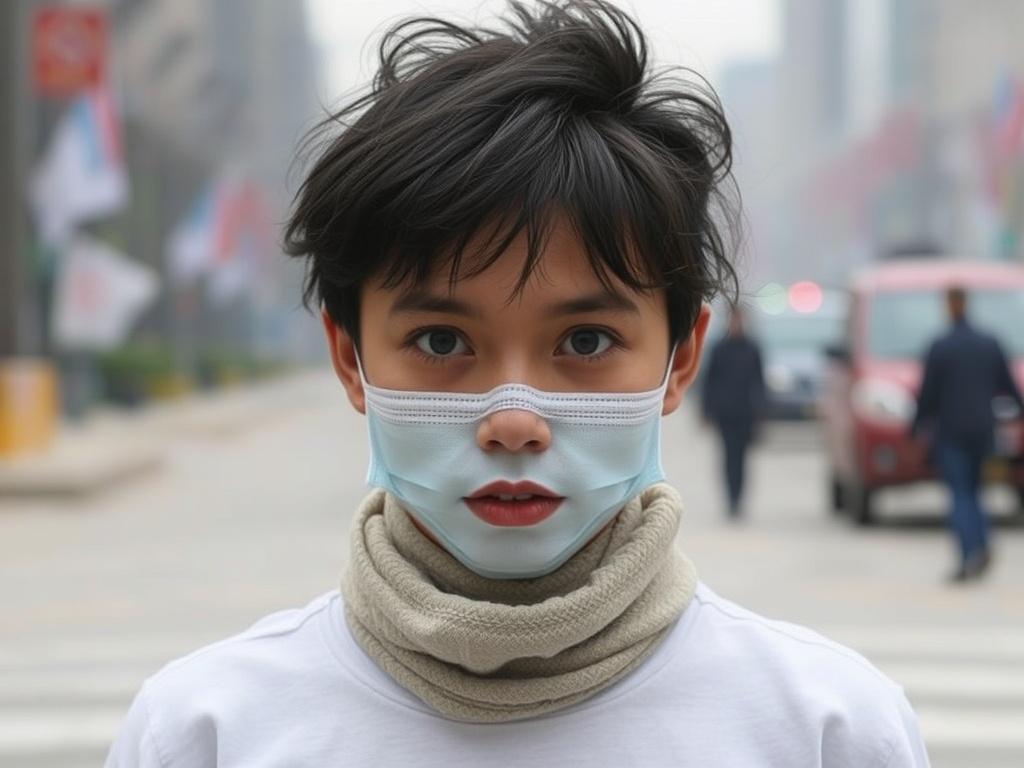Содержание статьи
- 1 What is Pollution and How Does It Reach Your Skin?
- 2 How Pollution Damages Your Skin
- 3 Who is Most at Risk?
- 4 Signs Your Skin is Being Affected by Pollution
- 5 How to Protect Your Skin from Pollution
- 6 Specialized Treatment Options for Skin Damaged by Pollution
- 7 Myths and Facts About Pollution and Skin Health
- 8 The Future: Pollution and Skin Care Innovations
- 9 Conclusion
Pollution has become one of the most pressing environmental issues in recent decades, affecting not only the air we breathe and the water we drink but also our skin—our body’s largest and most visible organ. The impact of pollution on your skin is more serious and complex than many people realize, influencing everything from premature aging to skin sensitivity and even the development of certain skin conditions. Understanding how pollution affects your skin can empower you to take better care of it, reducing potential damage and maintaining a healthy, glowing complexion.
In this article, we take a deep dive into the various types of pollutants that expose your skin to harm, how these pollutants interact with your skin, and the steps you can take to protect and repair your skin against these effects. Whether you live in a bustling urban environment or somewhere with less visible pollution, the information here is essential for anyone looking to maintain healthy skin in today’s world.
What is Pollution and How Does It Reach Your Skin?

Pollution consists of harmful substances released into the environment through human activities such as manufacturing, vehicle emissions, and waste disposal. These pollutants include particulate matter, nitrogen dioxide, sulfur dioxide, ozone, heavy metals, and volatile organic compounds. Most people associate pollution damage with respiratory or cardiovascular health, but the skin, as the body’s outermost defense barrier, is constantly exposed to these elements.
Pollution reaches the skin in two main ways: through contact with airborne particles and via free radicals created when the skin encounters pollutants. Pollutants can settle directly on the skin’s surface or penetrate deeper into its layers, disrupting its natural functions and triggering inflammation, dryness, or hypersensitivity.
Types of Pollution Affecting Your Skin
To understand the impact of pollution on your skin, it helps to know the specific pollutants that cause damage:
- Particulate matter (PM2.5 and PM10): Tiny particles released from combustion engines, construction work, and industrial processes. These particles can penetrate pores, clogging them and causing irritation.
- Ozone (O3): A highly reactive gas found in urban smog, ozone damages skin cells by generating oxidative stress, leading to premature aging.
- Nitrogen dioxide (NO2): Emitted mostly from vehicles, nitrogen dioxide contributes to inflammation and breakdown of the skin’s protective barrier.
- Heavy metals: Substances such as lead, mercury, and cadmium find their way into the environment through industrial discharges, contaminating the air and water with toxic effects on skin health.
- Volatile organic compounds (VOCs): Chemicals released from paints, solvents, and fuels that can cause skin sensitivity and exacerbate conditions like eczema.
How Pollution Damages Your Skin
Pollution harms your skin through oxidative stress, inflammation, and impairment of the skin’s natural barrier. Let’s explore how these mechanisms work in more detail.
Oxidative Stress and Free Radical Damage
When your skin is exposed to pollutants like ozone or particulate matter, it results in the formation of free radicals—unstable molecules that attack skin cells, damaging proteins, lipids, and DNA. This process, known as oxidative stress, accelerates skin aging by breaking down collagen and elastin, essential proteins that keep skin firm and elastic. Over time, pollution-induced oxidative stress leads to wrinkles, fine lines, rough texture, and uneven pigmentation.
Inflammation and Skin Sensitivity
Pollutants introduce irritants to the skin, which can trigger immune responses causing redness, swelling, and itchiness. Chronic inflammation weakens the skin’s defense mechanisms and enhances susceptibility to conditions such as acne, eczema, and psoriasis. People living in polluted environments often report heightened skin sensitivity, dryness, or rashes due to constant exposure to environmental stressors.
Impairment of the Skin Barrier
Your skin’s barrier function is like a shield that keeps moisture in and harmful agents out. Pollution disrupts this barrier by reducing natural oils and damaging the outer layer of cells. This makes the skin lose hydration rapidly and increases vulnerability to allergens and bacteria. A compromised skin barrier can worsen dryness, irritation, and overall skin health.
Pollution and Premature Skin Aging
Research has shown a strong link between chronic pollution exposure and premature skin aging. Pollutants can accelerate the formation of dark spots (hyperpigmentation), cause uneven skin tone, and increase the appearance of fine lines. Pollution’s effect on the skin’s structure often mimics the signs of natural aging but at a much faster rate.
Who is Most at Risk?

Everyone is susceptible to the impact of pollution on skin, but certain groups face higher risk factors:
| Group | Reasons for Increased Risk |
|---|---|
| Urban Dwellers | Constant exposure to traffic emissions, smog, and industrial pollutants. |
| People with Sensitive Skin | More prone to irritation and allergic reactions from pollutants. |
| Elderly Individuals | Natural decline in skin barrier function makes pollution damage worse. |
| People with Pre-existing Skin Conditions | Pollution exacerbates symptoms of eczema, acne, and psoriasis. |
| Outdoor Workers | Prolonged outdoor exposure increases pollutant contact with skin. |
Signs Your Skin is Being Affected by Pollution
If you live in an environment with moderate to high pollution, you might notice certain changes in your skin that suggest it’s under attack.
- Increased dryness or itchiness even after moisturizing
- Frequent breakouts and clogged pores
- Redness or inflamed patches
- Dull or uneven skin tone
- Premature appearance of wrinkles and fine lines
- Dark spots or hyperpigmentation worsening over time
Being aware of these signs can help you adjust your skin care routine or seek professional advice to mitigate the damage caused by pollution.
How to Protect Your Skin from Pollution
Protecting your skin starts with building a defense against environmental aggressors and maintaining skin health through good habits and appropriate skincare products. Here are some surefire ways to protect yourself:
Daily Cleansing and Detoxifying
The first step in protecting your skin from pollution is to thoroughly cleanse it at the end of each day. Dirt, grime, and particulate matter accumulate on your skin’s surface and shoulders the burden your skin barrier can handle. Using a gentle cleanser that removes pollutants, makeup, and excess oils without stripping skin moisture is essential. Double cleansing, which involves an oil-based cleanser followed by a water-based cleanser, can effectively remove stubborn impurities.
Antioxidant Skincare
Antioxidants are your skin’s best friend against pollution. Ingredients such as vitamin C, vitamin E, niacinamide, and green tea extract neutralize free radicals and help repair oxidative damage. Incorporating antioxidant serums or creams into your routine can boost your skin’s resilience and reduce signs of aging caused by environmental stressors.
Broad-Spectrum Sunscreen
While UV rays are well-known skin aggressors, the combination of sun exposure and pollution worsens skin damage. Pollution weakens your skin’s ability to protect itself from ultraviolet damage, so applying broad-spectrum sunscreen daily is vital to prevent further harm.
Barrier Repair and Hydration
Using moisturizers that focus on restoring the skin barrier helps lock in moisture and shields your skin from pollutant penetration. Look for products containing ceramides, hyaluronic acid, and fatty acids to strengthen your skin’s natural defenses.
Additional Protective Measures
- Physical barriers: Wearing clothing such as hats, scarves, or masks can reduce direct pollutant contact, especially for outdoor workers.
- Indoor air quality: Use air purifiers and keep your living space clean to reduce pollutant exposure at home.
- Humidifiers: These help maintain moisture in dry or polluted environments, supporting skin hydration.
Specialized Treatment Options for Skin Damaged by Pollution
If pollution has taken a toll on your skin, several professional treatments and remedies may help repair damage and restore skin health.
| Treatment | Benefits | Considerations |
|---|---|---|
| Chemical Peels | Remove dead skin cells, improve tone and texture | Requires professional supervision; may cause temporary irritation |
| Microdermabrasion | Exfoliates skin surface, promotes collagen production | Best for mild to moderate skin damage; multiple sessions needed |
| Laser Therapy | Targets pigmentation, boosts skin renewal | Can be costly; potential downtime |
| Topical Retinoids | Stimulates collagen, speeds cell turnover | May cause irritation initially; avoid during pregnancy |
| Professional Antioxidant Treatments | Delivers potent antioxidants deeper into the skin | Requires maintenance treatments |
Myths and Facts About Pollution and Skin Health
To clear some confusion around pollution and skin health, here are common myths debunked:
- Myth: Pollution only affects your lungs, not your skin.
Fact: Your skin is the first line of defense and directly exposed to all environmental pollutants, resulting in significant damage if left unprotected. - Myth: Washing your face once a day is enough to protect against pollution.
Fact: Especially in polluted areas, thorough cleansing morning and night, sometimes double cleansing, is recommended to remove impurities. - Myth: Only city dwellers need to worry about pollution harming their skin.
Fact: Pollution can impact suburban and rural areas as well through airborne particles and indoor pollutants. - Myth: Expensive skincare products are the only way to protect against pollution.
Fact: Consistency, proper cleansing, and antioxidant use are more important than price tags.
The Future: Pollution and Skin Care Innovations
With pollution levels rising globally, the skincare industry has responded with increasingly advanced products and technologies designed specifically to combat pollution’s effects. Researchers are exploring new antioxidants, anti-pollution barriers, and formulations that not only shield the skin but also stimulate its natural repair processes.
Moreover, wearable technology that tracks pollutant exposure is emerging, empowering consumers to make daily skincare decisions based on environmental data. Innovations like films or sprays that physically block pollutants are also on the horizon, promising to change the way we think about and handle pollution’s impact on our skin.
Practical Tips for Everyday Skin Protection Against Pollution
To sum up, here is a handy checklist you can incorporate into your daily life to protect your skin from pollution:
- Cleanse your face thoroughly every morning and evening.
- Use antioxidant-rich serums or moisturizers regularly.
- Apply broad-spectrum sunscreen daily, even when it’s cloudy.
- Stay hydrated to promote natural skin repair.
- Wear protective clothing and consider masks in heavily polluted areas.
- Maintain a healthy diet rich in vitamins and antioxidants.
- Improve indoor air quality using purifiers and plants.
- Avoid smoking and limit exposure to secondhand smoke.
Conclusion

The impact of pollution on your skin is undeniable and increasingly relevant as environmental challenges continue to grow worldwide. From oxidative stress and inflammation to compromised skin barriers and premature aging, pollutants wreak havoc on your skin’s health and appearance. However, by understanding these effects and implementing protective measures—from thoughtful skincare habits to lifestyle adjustments—you can shield your skin and maintain its natural beauty despite environmental challenges. Remember, your skin deserves daily care and protection, just like any other vital part of your body, especially in today’s polluted world. Taking proactive steps now not only improves your skin today but also helps preserve it for years to come.

